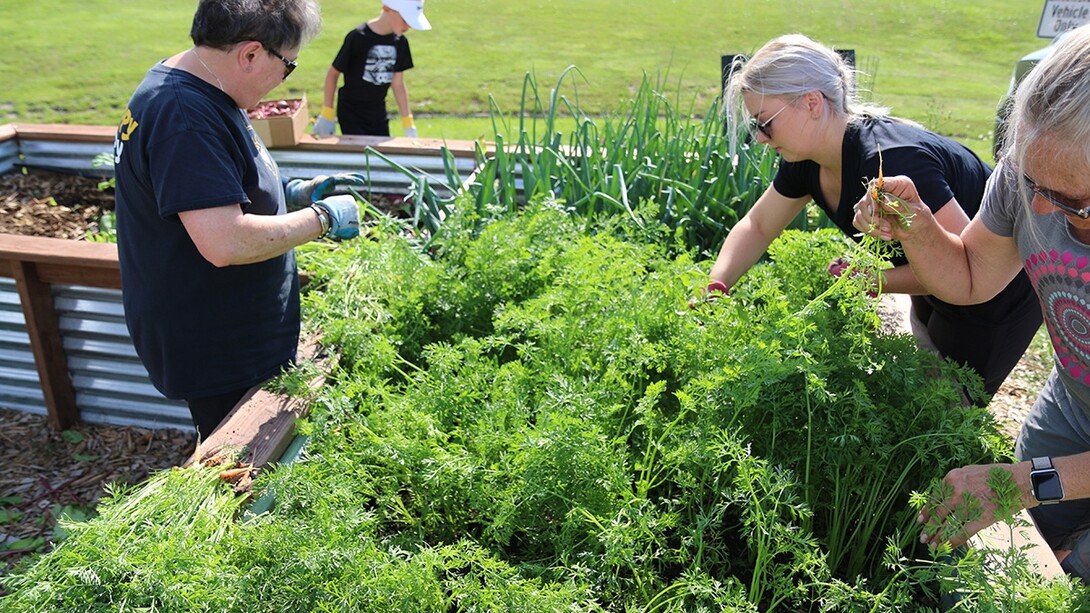
Lincoln, Neb. — Overwintering Tender Perennials
Many tender perennials can be overwintered indoors. Cut the plants back by one third, repot them and place them in a sunny window. Another way is to take cuttings: remove the leaves from the lower halves of three to six -inch cuttings and insert the stems in a small container of moist potting mix. Or place the cuttings in a jar of water and pot them up when they have developed healthy roots.
Saving Seeds
You can save some of your garden seeds for next year. Make sure you are collecting from open pollinated varieties, not hybrids. Let both vegetables and flowers mature before you harvest them. Remove the seeds from the fruits and flower heads and dry them. After the seeds are dry, they will need a cold dry spot for storage. To learn more about saving seed, check out the Seed Saving Resources on the Seed Savers Exchange website: https://www.seedsavers.org/learn
Plant Perennial Flower Seeds in the Fall
Fall is a great time to plant flowering perennial seeds. Many native plant seeds require a cold treatment before they will germinate. The chill of winter and the warm-up in spring triggers them to break dormancy. Prepare your planting area and add some organic matter such as compost. Wait to plant seeds until after the first killing frost, but before the ground freezes, about the same time of year as you’d plant daffodil and tulip bulbs.
Maintain Perennial Beds into Fall
Roots continue to grow until ground temperatures are below 40 degrees, so now is a good time to mulch perennial beds with organic material such as bark chips or leaves to suppress weeds, preserve moisture, and give roots a longer time to grow. Applying compost in the fall will add nutrients and has other beneficial soil effects. And be sure to keep watering until the soil freezes. Roots surrounded by moist soil are less likely to suffer cold temperature injury.
Start a Garden Journal
Fall is a good time to reflect on your garden and start planning for next year. A Garden Journal is a place to keep notes, observations, plans, and anything that relates to your garden. Keeping a garden journal gives you a record of your garden layouts, plans, successes and failures. There are no rules! It is what YOU make it. Keep it simple so you are more likely to stick with it and record the important things as soon as possible so you don’t forget.







